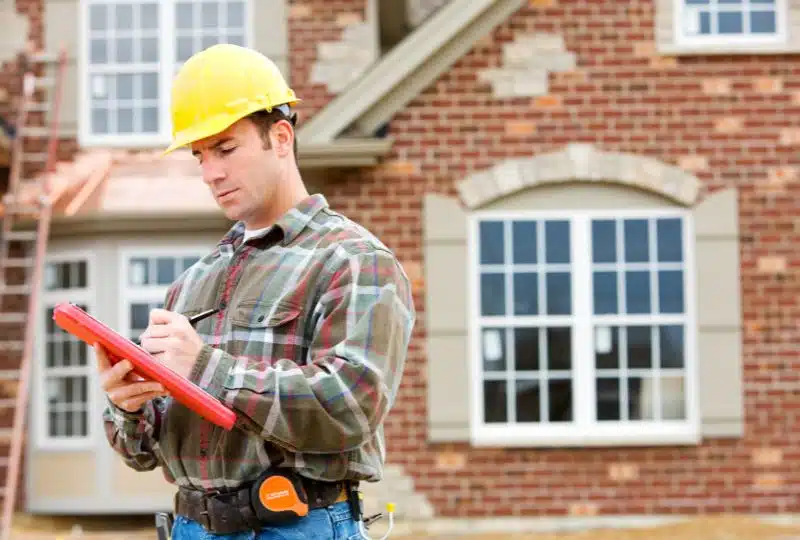
You’re about to buy your first home. You tour a home, and it appears to check every box on your list of wants and needs: unique character, a great layout, and a gorgeous backyard. The home is your dream!
Continue reading this inspection checklist for first-time homeowners that you need before you can close on the purchase of your first home.
First, you’ll need to hire an inspector to carefully examine the important features that make up a structurally sound home. For each of these inspections, the inspector will thoroughly examine several components of the home, list the required repairs, and give cost estimates.
The foundation is the essential support any house needs to stay strong for years to come. Inspectors look for any cracks or sloping in the home’s foundation. They also examine the area for any moisture damage that might impact the structural wood of the home.
Another important item first-time homeowners should have on their inspection checklist is a sturdy roof. There are various types of roofing materials, but the most common are asphalt shingles. These roofs need replacing every 15 to 30 years.
Inspectors will examine the status of the roof and use the previous homeowner’s repair records to establish the condition and potential repairs for the home’s roofing.
While the inspector looks at the roof, you might ask that they also glance at the gutters. Rain gutters are important features to inspect because they can affect the integrity of the roof over time if not properly cleaned regularly. If they appear worn down, broken, or even as if they’re damaging the roof, that’s something you’ll need to take into consideration before purchasing the home.
Inspectors don’t only look to see if the wiring in the house works. They also check for any outdated or hazardous wiring that needs an update.
Image Source: pexels.com
Older homes might have outdated wiring. Inspectors will let buyers know if the wiring needs replacing so the system is up to code.
The same standards go for plumbing as for electrical wiring. Some older homes have outdated or broken plumbing systems that need a remodel. But most of the time, you’ll find a home with minimal plumbing update requirements. Perhaps it’s simply fixing the water pressure or a small leak!
The last important item inspectors will check is the HVAC system. You want your heating and cooling systems to function properly throughout the house. You also want to note how effectively the system works to heat or cool each room; some rooms might insulate the air better than others.
Buying a home for the first time is intimidating. You want to make the right decision. Once the inspector comes back to you with all the information, you can decide from there if the house and the number of repairs needed are things you can accommodate.
You spend a lot of time in your home, so it’s important to create a…
If you love a modern house vibe, you can find several easy ways to update…
Are you looking to spruce up your home without breaking the bank? Home improvements don’t…
Florida, also known as the Sunshine State, boasts a vibrant real estate market filled with…
A backyard fireplace is the perfect feature to take any outdoor space up a notch.…
The kitchen, often referred to as the heart of a home, is where both meals…